Clare McCall is the CEO of a busy Auckland-based plumbing company with over 35 employees. She leads in a male-dominated industry, manages a household with her partner to Bino, and is also changing lives in Nepal through education and fundraising.
At 48, Clare is going through perimenopause as well.
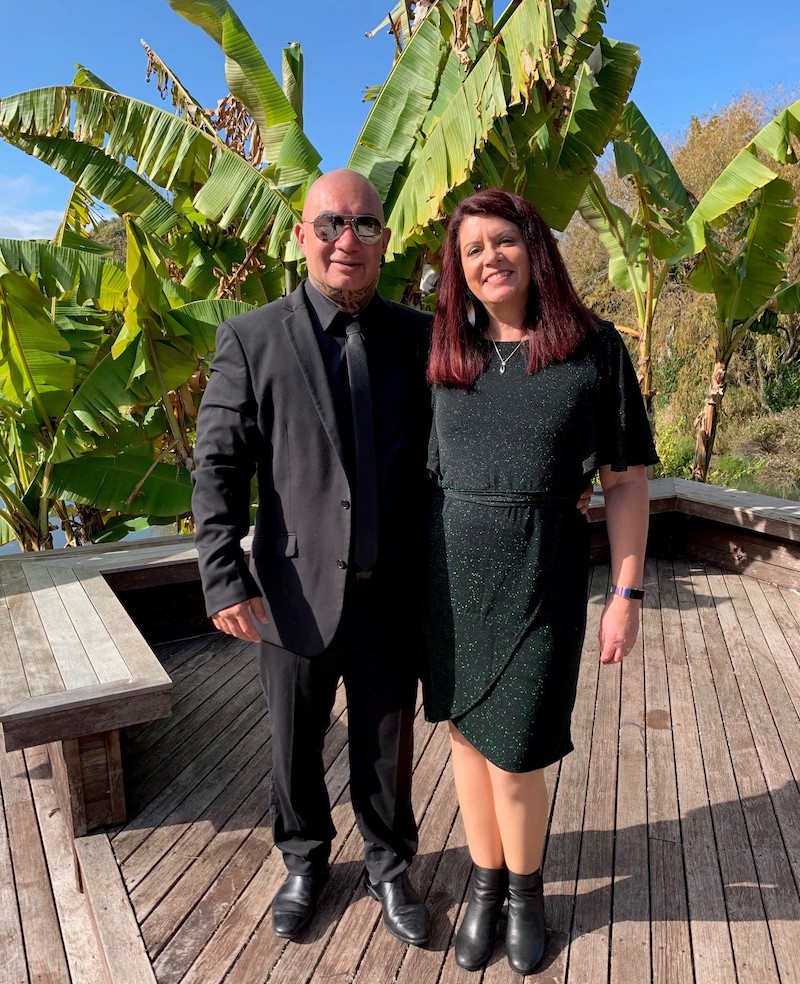
What Even Is Perimenopause?
Clare had never heard of perimenopause – until she was in the thick of it. At the time, she was undergoing medically supervised fertility treatment.
“The specialists said I might still get periods, but not always ovulate. Testing showed I had an 11% chance of success – even with estrogen patches and other props. My estrogen had flatlined. They told me menopause was likely around the corner. But they didn’t explain what that meant. No one mentioned perimenopause.”
Clare had long suffered from heavy, painful periods.
“I thought, well, if nothing’s worked, I’ll be happy for my periods to stop. I didn’t realise it wouldn’t be instant.”
Becoming Symptomatic
Clare began experiencing many common symptoms – hot flushes, fatigue, and mental fog. and a frazzled brain.
“Running a business with 35+ staff meant I had to be at the top of my game, even when I felt like crawling under the duvet. And hot flushes in a room full of blokes? Never fun.” Five and a half years into her relationship with Bino, Clare jokes:
“I often think – if only you’d known me before I became this crazy menopausal woman.”
Driven to find answers, Clare began researching menopause and hormonal health.
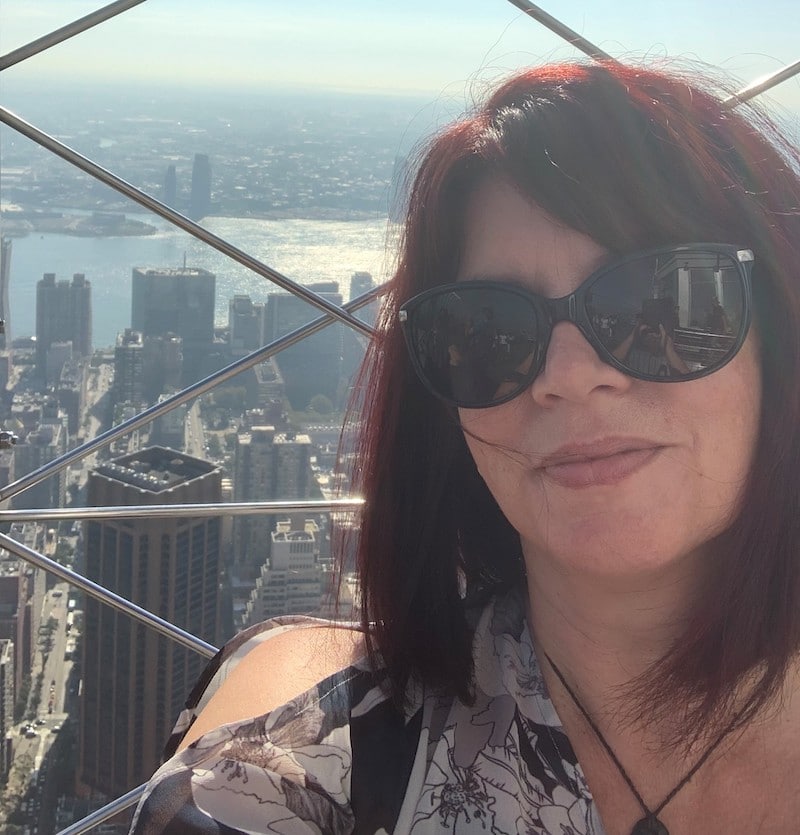
“I suspected I had thyroid issues too. So I changed my diet, swapped Crossfit for Pilates. and started spending more time in nature. That helped a lot.”
Editor’s note: Thyroid changes are very common in perimenopause.
“I was clear – I didn’t want to be medicated to manage menopause. My mum used HRT patches, but that wasn’t for me.
After discovering MenoMe®, Clare gave it a try.
“I took MenoMe® for six months. Then I forgot to reorder. When the symptoms came back almost immediately, I signed up for a subscription. It’s been a game-changer.”
Clare also values the MenoMe® community.
“I’m not into social media, but I love the weekly newsletter. It’s relatable. I often see the tips and think – ‘that’s easy, I’ll try it’, or ‘I hadn’t thought of that.’”
Still, there’s a sense of isolation.
“Everything around menopause seems to centre on being a mother. It can feel lonely. But at least it’s not behind closed doors anymore – people are starting to talk about it.”
Giving Back: The Himalayan Leaky Foundation
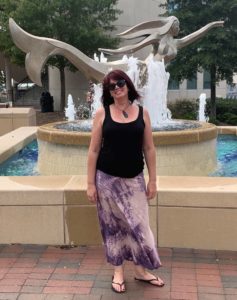
When Clare learned she couldn’t have children she channelled her grief into charity work.
“I think that’s how I’ve coped.”
In 1999, Clare fell in love with Nepal while backpacking. She returned in 2009, and helped out after the 2015 earthquake.
In 2017, she co-founded the Himalayan Leaky Foundation with Rabindra Tamang in memory of her father, John McCall. John had founded the company Clare now runs and passed away five years ago.
Nepal faces enormous challenges – limited healthcare, no water supply, poor sanitation, and a high risk of child trafficking.
“After the earthquake, water supply was cut off – hence the name. We now have 20 houses where 60 people live. and we’ve built a water well. Our latest project was a seven-kilometre pipleline through the mountain with Rotary.”
The foundation focuses on women and children.
“We’ve just rescued two teenagers from trafficking. Their mother thought they were going to work. We reunited them and built the family a home – they had been living in a mud hut”
“Women in Nepal are seen as ‘lesser’. We’re offering literacy classes and education so mothers won’t have to send their children to work.”
Clare's Quick Fire Q&A
When did you first realise perimenopause had begun?
In my mid-40s.
Did you understand what perimenopause (as opposed to menopause) was?
No, not until it was happening!
Did you feel you were too young?
Absolutely.
Were you shocked/surprised?
No, as I had realised my fertility issues in my early 40s and the doctor let me know menopause was just around the corner.
What have been your major challenges?
Running a business while experiencing brain fog and hot flushes. Especially tough in male-dominated environments.
How did you overcome them (if you have)
Lifestyle changes helped – diet, exercise, less wine. But MenoMe® was the game-changer.
What symptoms have you struggled with the most?
Heavy, painful periods. They now come about every six months and still knock me around.
Was there a turning point?
Reading and researching. That helped me stop fighting the process and start understanding it.
Do you feel you now understand this journey?
Yes – three years on, I get it.
Has MenoMe® contributed to your experience?
Yes! The products, the info, the caring community – it’s been a lifesaver.
Is there anything else you would like to add?
As someone who couldn’t have children, menopause has felt like another blow. So much of the conversation centres around motherhood. That can feel isolating. But I’m glad people are talking now – and I’m thankful for platforms like this one.
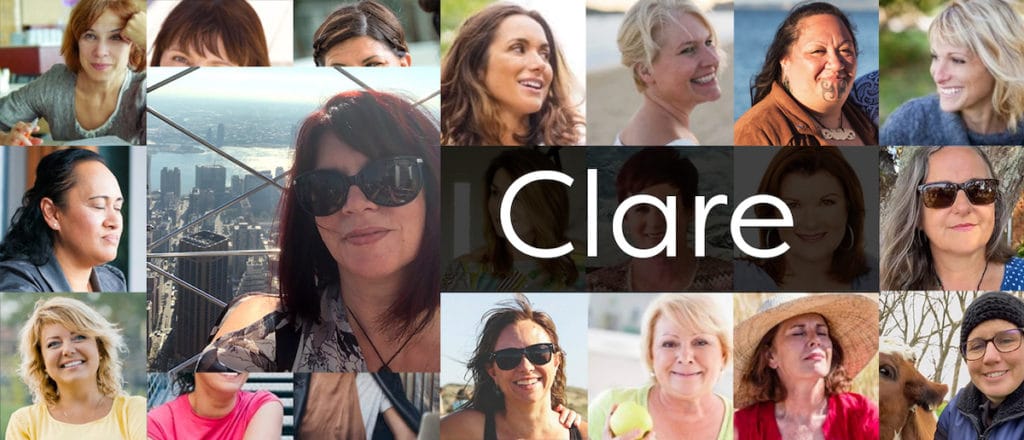
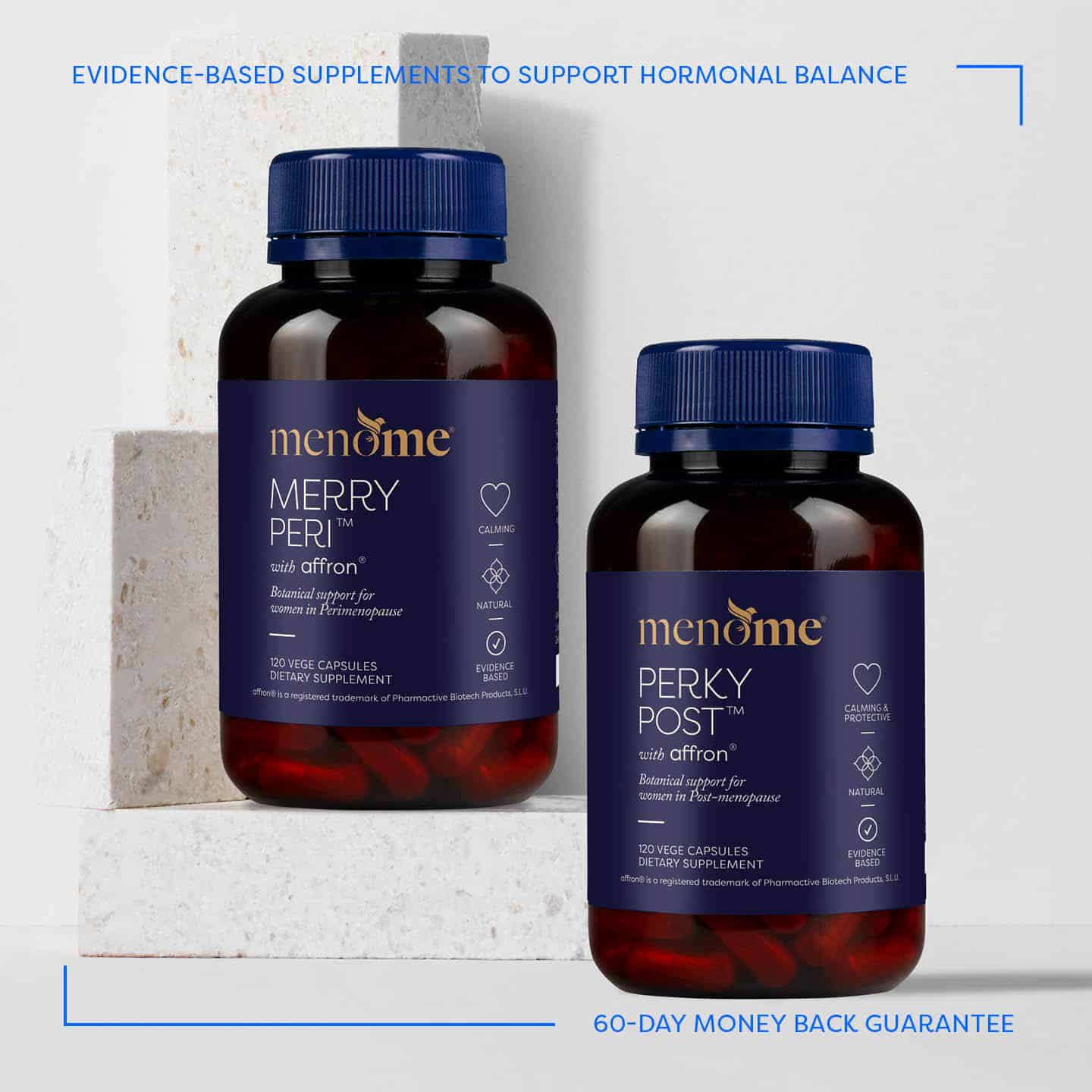
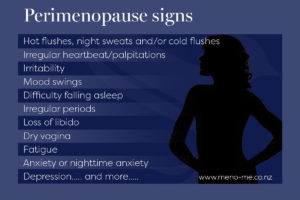



 Body-smart support for your stage of life
Body-smart support for your stage of life